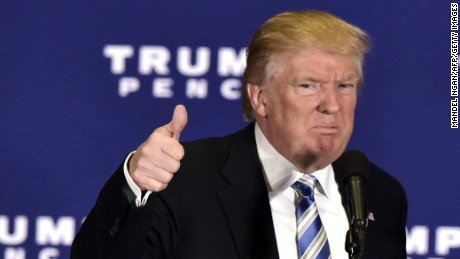
With the new craze of Trump protesters on the street, it gives us an idea of how unexpected the Trump victory actually was. Coming from a campaign filled with alleged xenophobic, racist, anti-islamic, and anti-women statements, most other candidates would have been completely disqualified by uttering even a fraction of the statements coming out of Donald Trump's campaign. What we need to realize is that many people were fed up with the state of the government, both its corruption and bureaucracy. Donald Trump, to the surprise of many, was not wrong when he said he represented the “silent majority”. This majority, that consisted of whites, especially white women were underestimated. Most of these voters came out in droves from rural counties, and while he energized his so called “silent majority”, most of these voters had not voted in several elections, and were only brought out due to the anger directed to the status quo. To add fuel to the fire, another reason was the backlash of Hillary’s email, and foundation scandals that people could just not overlook. With a rigged primary, she discouraged the millennials into voting for Jill Stein, Gary Johnson, or even into abstaining to vote altogether. And while third parties were not a reason for a Clinton loss, it shows us how badly she disenfranchised a large portion of potential democratic voters.
First I would like to make a point about Donald Trump’s silent majority. A term first used by Nixon, these are mostly white, rural voters that came out in large numbers. Trump claims that they have been tossed aside by the mainstream politics, and while most gave no ear to his statements because of polls, he ended up being correct. Bringing these people from all sorts of ideologies, from evangelist, to conservatives, his base was attracted mostly to his persona, and not his policy. That is one of my theories as to why he did so well in the primaries, because his opponents challenged him on his policies, not his persona, but most people did not care about policies, they only cared about his rhetoric of nationalism, and cleaning Washington of corruption.
The rural vote in America came out to vote in majority to Donald Trump. While Hillary won by 7 percent in urban areas, Trump beat her by over 25% in rural communities. These rural areas are predominantly white workers, and with the campaign tone that Trump set during the past 2 years, it was directed to appeal to those voters. While these voters at first were embarrassed of stating they would vote for Trump, their opinions became reality once they were given a secret ballot. This is probably the biggest reason why he won, because it took the Clinton campaign by surprise given polls could not have seen this coming.
The second reason would be the scandals revolving around Hillary Clinton. The emails, The Clinton Foundation, and the statements by FBI director Comey all played a part in decreasing trust in her candidacy that was already fragile. The Hillary versus Trump campaign was not based on policy, but as stated earlier on persona. Trump, although with many faults of his own, played the game right when on debates he would repeatedly attack her image, even going so far as calling on her to go to jail and dubbing her “Crooked Hillary”. While Hillary played by the rules, Trump ignited the hate against a corrupt political insider, that would only mean bigger government and more bureaucracy. With Wikileaks constantly releasing email, and the Hillary camp not even acknowledging them, but instead blaming foreign influence hurt her campaign greatly. The DNC leak, CNN debate questions, and Comey were all proven to be correct, but were tried to be downplayed by both Hillary’s campaign, and the mainstream media. Podesta’s emails showing democrats inciting fights at rallies, and the demeaning on Trump supporters hurt her badly in the long run. While Trump could not compare to Hillary in experience, he used that for his advantage because he labeled Hillary’s experience as 30 years of corruption and lies.
Due to the DNC leak and the resignation of Debbie Wasserman Schultz, it estranged her from millennium voters, especially Bernie supports. Coming from a primary that featured groups like Bernie Bros, and Bernie or Bust, the democratic party should have been more careful in determining who they should have chosen as a candidate, and at least should have been fair in their choosing. Her depiction of Bernie supporters as basement dwelling couch potatoes hurt her in the long run with millennials, making a third of his supporters to vote for either Jill Stein, Gary Johnson, or no one at all. In the age of Facebook, Wikileaks, and internet news networks, Hillary putting all her trust in the mainstream media defending her did not work for millennial voters, and in turn was a big part of what cost her the election.
The election was a competition between the establishment and a political outsider. Hillary probably never stood a chance due to her emails proving her ties to the establishment, and Trumps constant attack on her image as a politician. The only way that the democrats could have had a chance to win was to pit two outsiders against each other, Bernie, which is not an outsider to politics but had an outsider sales pitch to millennials and middle class voters, would have stood a fighting chance against Trumps aggressive campaigning techniques trying to debate on persona over policy.
Oddly, Trump got 2.9 million fewer votes than someone else.
Downvoting a post can decrease pending rewards and make it less visible. Common reasons:
Submit
Unfortunately popular vote doesn't count for much, on the other hand thankfully California can't decide who's president!
Downvoting a post can decrease pending rewards and make it less visible. Common reasons:
Submit